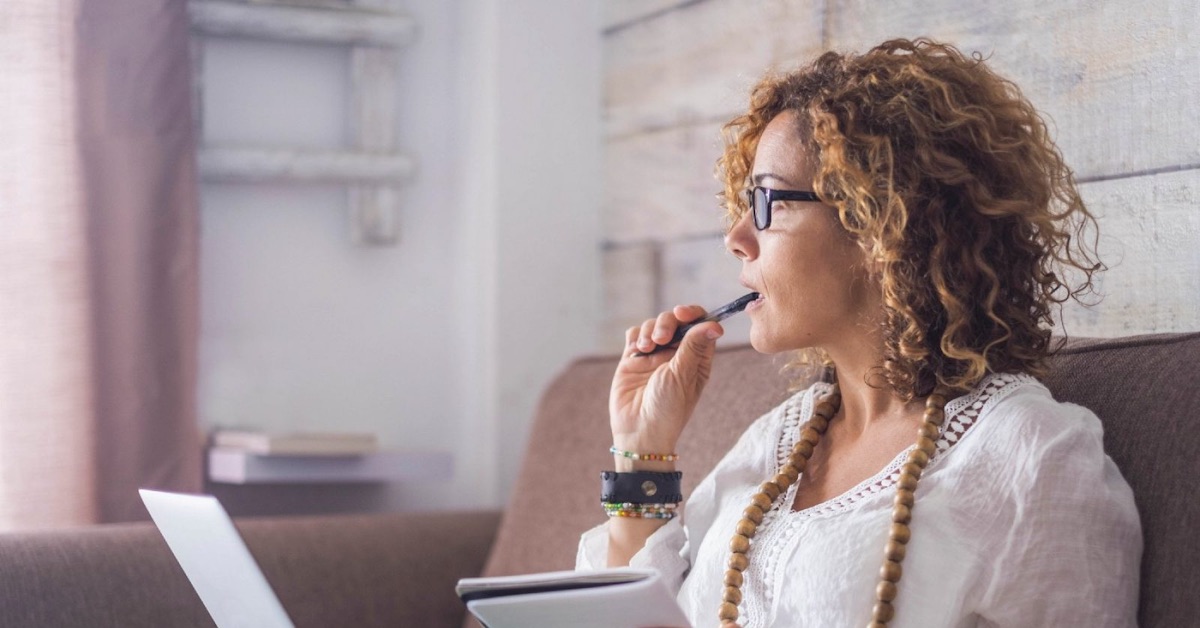World Bipolar Day: Celebrating, Honoring, and Recognizing Lived Experiences

By Gina Nepa
March 24, 2021
In honor of World Bipolar Day, I interviewed three participants who each have a bipolar disorder diagnosis. Some responses have been condensed for clarity. Participants’ names have been changed to protect the privacy of the individuals. Please note this article contains references to assault and psychiatric hospitalizations.
1. Could you speak to how you came to learn that you had bipolar disorder? What did your treatment trajectory look like, if you’ve been able to access treatment?
Sam: I came to learn that I had bipolar disorder when I had a manic episode in public and had to be taken to the hospital in an ambulance. I spent the night at the hospital and it was there that I was diagnosed. I then voluntarily admitted myself into a psychiatric hospital and was there for 13 days. I was extremely confused, frightened, and paranoid. Since my incident, I have worked with a psychiatrist for medication management and check-ins for my mood.
Jessie: I first found out while manic, in an appointment with a psychiatrist. Being manic, expecting an outpatient appointment with a psychiatrist to fix my trajectory was wishful thinking. I ended up hospitalized a week or two later for stabilization. As my reasonable, more stable self came back to reality in the psych hospital, I realized how dire my situation had gotten and how close to tragedy I came. Since then, I’ve been pretty hypervigilant in order to prevent another traumatic manic episode. I’ve continued outpatient treatment since, although I did not have a therapist for a couple of years.
Pat: In high school, I was given treatment for anxiety and depression, and that was ineffective. I never actually learned what bipolar disorder was when a psychiatrist gave me the diagnosis. I wasn’t given the bipolar diagnosis until after an assault in college at the age of 20, that was when everything really spiraled out of control. After that, when I was a junior, I was diagnosed with ADHD. When I was in graduate school, I was finally diagnosed with PTSD.
Before finding the right psychiatrist, from the ages of 14–20, I had felt I hadn’t been listened to by any medical professional. I just feel like my treatment has been such a long, spread-out thing; I didn’t actually believe I had bipolar disorder until someone else who had bipolar disorder told me they believed I did. I just didn’t really know what to say to the [assessment] answers. It’s like, “oh, have you experienced this elevated mood for more than 2 weeks?” I don’t fucking know. I had no idea when I was a teenager when you’re dealing with other things like an assault. How are you supposed to know what your mood is supposed to be like then? I didn’t trust any of the actual healthcare people.
2. What would you say is the biggest misconception you’ve experienced from others about living with bipolar disorder?
Sam: The biggest misconception about bipolar disorder is that you have to become your illness. I told myself after my hospitalization that I didn’t want to go back there, and I haven’t. That was almost 7 years ago. I have learned what promotes my mental health and what my stressors are. Those with bipolar are more than their diagnosis.
Jessie: That we’re some violent, tragic population; we’re either a group of individuals destined for a glorious downfall or we’re dangerous and should be feared.
Pat: “You don’t act like you have bipolar disorder,” like it’s something you can flip on and off. People aren’t bipolar, they have bipolar disorder. That’s the biggest thing.
3. What would be helpful for healthcare providers to understand about what it means for you to live with this diagnosis?
Jessie: Please, just fucking LISTEN TO ME. BELIEVE ME. Believe me when I tell you what meds work, what meds haven’t worked, how my body and mind have reacted to your suggested med tweaks. I am not some interesting experiment for you to do a case presentation on after you play alchemist with my brain. Everyone’s bipolar is different, regardless of how their symptomatology charts out in the DSM, so can you please just hear us out before leaping to your alembic to tweak my brain using your decision tree?
Pat: I hate that stuff, of having to list off psych meds for, like, a cut thumb. I would like healthcare providers to be more neutral when giving me medical advice.
4. Could you speak to any strengths you’ve been able to glean as a result of living with this diagnosis?
Sam: Strengths that I have gained are definitely recognizing moods and what triggers them. I have more self-awareness about my feelings and what they mean or where they came from.
Jessie: I am so much more exhaustively, and at times debilitatingly, self-aware of my behavior and symptoms. I’ve also become a much more purposefully vulnerable person. After having kept my diagnosis quiet because I was afraid of what employers, partners, or whoever would do or say in response to seeing my hideous, hidden self, I came to realize that it was so much more beautiful to share my experience because of how many others have kept so much of themselves in hiding. I am so much more empathetic now than I was before my ego took the body slam of a lifetime when I was diagnosed. It’s so beautiful and tragic to see someone peek their own experiences with bipolar or addiction out behind their masks once I’ve opened up about mine, what better to honor my own experience than to share it first?
Pat: I make music and art, and I’m charming as fuck. And I generally have an easier time relating to others who struggle with mental illness. I’ve written my best music to channel mania, you know what I mean?
5. What, if anything, makes you feel healthiest when living with this diagnosis? What can others do to support you in living your best life?
Sam: Adequate sleep and a structured schedule help me feel healthiest. I’m happiest when I don’t take life too seriously, have fun with my hobbies, maintain a social life, and connect with loved ones.
Jessie: I feel healthiest when I have routines, structure, and support. I can cope well with sudden pivots or stressors. I’m great in an emergency, but if I don’t have consistent support, or a routine in place to adjust, even a small blip can be extremely difficult to cope with.
Pat: I don’t know yet what makes me healthy. I’m still trying to get up in the morning. How do you have time to figure out what makes you feel healthy when you’re just trying to stay alive? Stop telling me to meditate, please. What can others do? Listen.
6. Is there anything else you would like people to know or understand about your experiences living with this diagnosis?
Sam: Nobody should ever be shamed for their bipolar disorder. Bipolar is not an interchangeable adjective either. I’ve heard people call the weather bipolar, babies who go from happy to crying, etc. It’s just not right, and it makes light of those who actually have to live with the disorder. Bipolar disorder needs to be and destigmatized just like any other mental illness or chronic condition for that matter. I know that I am scared to talk about my condition with others because I get worried that I’ll be thought of differently and labeled. I choose sparingly who to open up to about my condition. Those who already know who I am say that they would have never guessed I was diagnosed. It takes work and support, but living a healthy life with bipolar disorder is possible. Bipolar disorder is an element of my life, but it doesn’t define me.
Jessie: It’s a mood disorder, y’all. A *mood* disorder. So, yes, you get to enjoy the heroic, victorious tales we may share, but you do not get to treat them like inspirational pornography. Because guess what? Sure, I may be doing great right now, but if you enjoy my story and then start holding me to an ignorant, unreasonable standard if I end up triggered into a mood swing even mildly out of the norm, you need to get your Ableism card punched. Also, see number 3. Listen to us. Believe us. Don’t believe the movies, TV shows, news, whatever messages you’ve received about what bipolar looks like or who people with bipolar are. If you want to be treated as an individual because you’re a unique, wonderful person, then don’t treat us any differently. We are brilliant, good people, who deserve love, support, and opportunity.
Pat: It’s not the end-all, be-all.
Explore more

Quality Mental Health Care, Wherever You Are
At Quartet, we know that mental health care isn’t one size fits all.

Take Your Own Advice: A Note to Therapists on Self Care During COVID‑19
COVID-19 added a layer of complexity for mental healthcare workers, who may be experiencing their own stressors and anxieties related to the crisis.

Fighting Two Pandemics: Supporting Domestic Violence Survivors and Their Mental Health Needs During COVID‑19
For some, following the stay-at-home orders for one pandemic may render them vulnerable to another: domestic violence.



